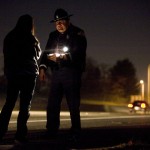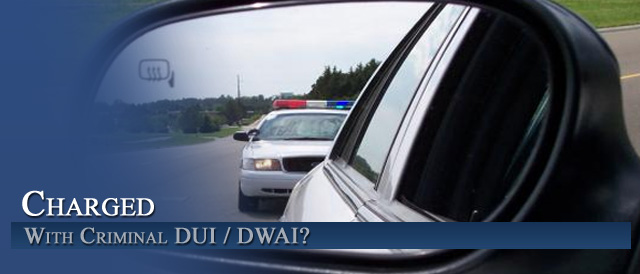
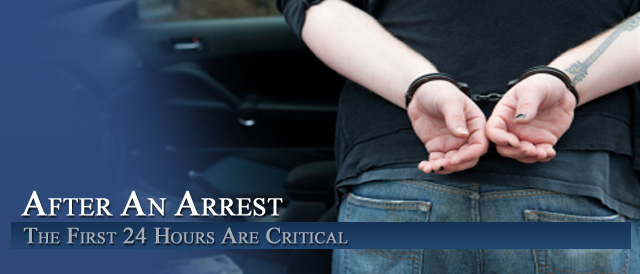

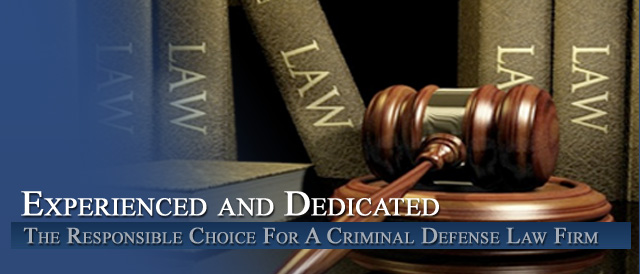
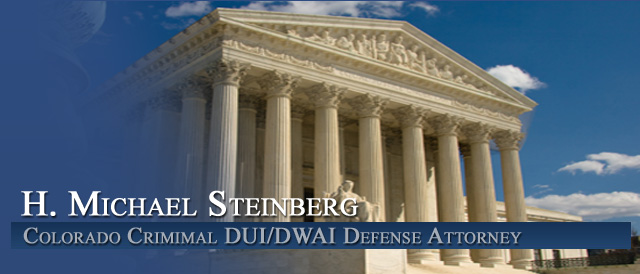
Colorado Vehicular Assault – Vehicular Homicide Charges – What They Mean
By Colorado Criminal Defense Attorney – Lawyer for the Defense of Vehicular Assault – Homicide Charges
Colorado Vehicular Assault – Vehicular Homicide Charges – A death that results from an auto accident while committing another traffic offense, such as DUI or DWAI typically results in the filing of a vehicular homicide charge in the State of Colorado. This charge is considered a very serious offense that could possibly result in prison time as well as a permanent felony record. If the case involves more than one death as a result of the car wreck, you could face additional counts of Vehicular Assault or Vehicular Homicide and increased prison time.
A charge of vehicular homicide in Colorado can be brought against a person who unintentionally kills another person as a result of operating a motor vehicle. Cases can include vehicular homicide cases that involve DUI driving, drug and substance abuse driving, reckless driving, speeding, texting while driving, or other kinds of grossly negligent driving behavior.
If you are facing a Colorado DUI vehicular homicide charge – you need to contact an experienced Colorado criminal defense lawyer as soon as you can do so.
To Understand The Crime – Start WithThe Colorado Criminal Jury Instructions
When – at the end of a trial – a jury is instructed on the law – it is in the form of a jury instruction. To understand a criminal offense – I submit the jury instruction is the most basic form of law to study – here they are:
The Colorado Crime of VEHICULAR ASSAULT – �18-3-205
The elements of the crime of vehicular assault are:
1. That the defendant,
2. in the State of Colorado, at or about the date and place charged,
3. operated or drove a motor vehicle,
4. [in a reckless manner, and] [one way to charge the case]
-or-
[while under the influence of [alcohol] [one or more drugs], or a combination of both alcohol and one or more drugs, and]5. this conduct was the proximate cause of serious bodily injury to another person.
6. [without the affirmative defense in instruction number __________.]
When this instruction is used, the applicable definitions of “motor vehicle”, “proximate cause”, and “serious bodily injury” must be given. Definitions of “in a reckless manner” (see definition of “recklessly”), “one or more drugs”, and “under the influence” must be given must be given where appropriate.
With reference to driving under the influence of drugs or alcohol, vehicular assault is a strict-liability offense. As such, the instruction on strict liability should be given.
See �18-3-205(2), C.R.S. and the following instruction, as to inferences to be drawn from the defendant’s blood alcohol level.
If the crime is committed under the influence of alcohol it is a class F-4 felony. If charged as reckless driving – it is an F-5 felony.
There is a Special Jury Instruction On Inferences to Be Drawn from Evidence of Blood Alcohol Level
In any prosecution in which the defendant is charged with vehicular assault, the amount of alcohol in the defendant’s blood at the time of the commission of the alleged offense, or within a reasonable time thereafter, as shown by chemical analysis of the defendant’s blood or breath, gives rise to the following:
(a) If there was at such time 0.05 or less grams of alcohol per one hundred milliliters of blood, or if there was at such time 0.05 or less grams of alcohol per two hundred ten liters of breath, it shall be presumed that the defendant was not under the influence of alcohol.
(b) If there was at such time in excess of 0.05 but less than 0.08 grams of alcohol per one hundred milliliters of blood, or if there was at such time in excess of 0.05 but less than 0.08 grams of alcohol per two hundred ten liters of breath, such fact may be considered with other competent evidence in determining whether or not the defendant was under the influence of alcohol.
(c) If there was at such time 0.08 or more grams of alcohol per one hundred milliliters of blood, or if there was at such time 0.08 or more grams of alcohol per two hundred ten liters of breath, it may be inferred that the defendant was under the influence of alcohol.
This instruction differs from the instruction used in DUI and DWAI cases. In Vehicular Homicide and Vehicular Assault cases, the issue is whether or not the defendant was under the influence. Here, if the defendant’s blood alcohol was between 0.05 and 0.08, there is no inference that is allowed to be drawn. �18-3-205(2), C.R.S.
The Colorado Crime of VEHICULAR HOMICIDE �18-3-106
The elements of the crime of vehicular homicide are:
1. that the defendant,
2. in the State of Colorado, at or about the date and place charged,
3. operated or drove a motor vehicle
4. [in a reckless manner,]
-or-
[while under the influence of [alcohol] [one or more drugs] [a combination of both alcohol and one or more drugs],]5. and such conduct was the proximate cause
6. of the death of another.
7. [without the affirmative defense in instruction number ________.]
When this instruction is used, the applicable definitions of “motor vehicle” and “proximate cause”, must be given. Definitions of “in a reckless manner”, one or more drugs, and under the influence are given must be given where appropriate.
See �18-3-106(2) and (3), C.R.S. and the following instruction, as to inferences to be drawn from the defendant’s blood alcohol level.
If the crime is committed under the influence of alcohol it is a class F- 3 felony. If charged as reckless driving – it is an F-4 felony.
One or More Drugs “One or More Drugs” shall mean all substances defined as a drug in � 12-22-303(13), C.R.S., and all controlled substances defined in � 12-22-303(7), C.R.S., and glue sniffing, aerosol inhalation, or the inhalation of any other toxic vapor or vapors as defined in � 18-18-412, C.R.S. This definition is applicable to vehicular homicide � 18-3-106, C.R.S. and vehicular assault � 18-3-205, C.R.S
Legal Defenses To Colorado Vehicular Assault and Vehicular Homicide Cases
Defending the Colorado charges of vehicular homicide or assault may seem daunting at first. However, not doing everything possible to fight the charge and to negotiate if the evidence is strong could dramatically change the course of your life.
Experience Counts In These Cases
H. Michael is an experienced attorney with over 40 years in the area of Colorado Criminal Law and has both prosecuted and defended clients against felony charges such as DUI vehicular homicide. His training and knowledge assists him to fully investigate your case to disprove the prosecution’s evidence and secure the best possible outcome. H. Michael works with a team of experienced investigators, accident reconstruction specialists, and other experts who can gather evidence in order to build your defense.
If the case moves forward – an accident reconstruction specialist will visit the scene of the accident, evaluate the vehicles involved in the collision, and interview eyewitnesses in order to map out the events that led to the wreck. In some cases the experts can establish that your actions did not cause the accident, you could beat your vehicular homicide charge.
In the State of Colorado H. Michael Steinberg has the kind of knowledge and experience to represent clients charged with vehicular homicide. A person can be charged with vehicular homicide if he or she was operating a vehicle and unintentionally but also unlawfully caused the death of another person. Whether a person was illegally driving a motor vehicle, driving under the influence, speeding or driving recklessly the person driving can be charged with vehicular homicide.
Insufficient Evidence
Vehicular homicide charges can be dismissed by a DA if the DA understands that there is insufficient evidence or factual innocence. It is possible to establish that the accused is not at fault for the accident. There may exist one of several other legal defenses available, including lack of negligence or gross negligence, proximate causation, involuntary intoxication, or mistaken identity.
Lack of causation between the driver’s conduct and the resulting accident is an effective legal defense. Supervening circumstances may exist such as a pothole in the road, defective car parts, the actions of the victim or of another party top the accident that can “break the chain of causation” and cause a jury or judge to find for you and resolve the case with an acquittal for the defendant charged. It is also possible to show that the accident would have occurred regardless of the defendant’s negligence or conduct.
Colorado Case Examines Intervening Cause Defense
In Colorado the District Attorney must prove the proximate cause of the accident ..
The phrase ‘proximate cause’ under Colorado Law means an act or failure to act which in natural and probable sequence produced the death of [the victim]. It is a cause without which the death of [the victim] would not have occurred.
If more than one act or failure to act contributed to the death of [the victim], then each act or failure to act may have been a proximate cause of the death. A proximate cause does not have to be the only cause or the last or nearest cause. It is sufficient if the act or failure to act joins in a natural and probable way with some other act or failure to act to cause the death of [the victim].
Stated another way “Proximate cause … means a cause which in natural and probable sequence produced the claimed injury. It is a cause without which the claimed injury would not have been sustained.”
Unbroken Chain Of Events
A defendant’s conduct is the cause of the victim’s death in a criminal homicide if “it began a chain of events the natural and probable consequence of which was the victim’s death.”
“In the criminal law, the gist of the concept [of proximate cause] is the not-so-complex principle that persons normally should be deemed responsible for the natural and probable consequences of their acts. The principle serves an evidentiary function, requiring proof by the prosecution of the causal relationship between the defendant’s conduct and the result.”
More Than One Proximate Cause
Thus the law in Colorado is that there can be more than one proximate cause of the victim’s death, and defendant’s conduct does not have to be the only, nearest, or last cause of death, so long as it is a cause but for which the death would not have occurred.
The Victim’s Contributory Negligence Is Not An Intervening Cause In Colorado
In Colorado, a defendant must take the victim as he finds him or her and therefor a victim’s contributory negligence is not a defense to a vehicular homicide charge unless the negligence was an intervening cause. One example is where a victim is not using a seatbelt when a defendant engaged in his reckless driving.
The failure to use a seatbelt is not a contributing factor in the collision of the two vehicles and usually has nothing to do with a defendant’s driving conduct. Also a victim’s failure to use a seatbelt would not cause a death in the absence of a defendant’s reckless driving.
What Then Is The Defense Of An INTERVENING CAUSE?
Three elements must be satisfied to establish an independent intervening cause sufficient to relieve a defendant of responsibility for his or her conduct:
(1) the defendant must not participate in the intervening cause;
(2) the intervening cause is one but for which the death would not have occurred;
and
(3) the intervening cause must not have been reasonably foreseeable.
An intervening cause is one that interrupts the natural and probable sequence of events following the defendant’s acts and intervenes to cause the death. An intervening cause destroys the causal connection between the defendant’s acts and the victim’s injury, thereby becoming the cause of the injury.
The Role Of A Victim’s Simple or Gross Negligence
Simple negligence that contributes to the death of a victim is foreseeable and, as a matter of law, cannot be an independent intervening cause.
However, gross negligence is unforeseeable behavior, and it may serve as an intervening cause. Gross negligence is conduct beyond simple negligence showing an extreme departure from the ordinary standard of care.
An intervening cause defense is treated like an affirmative defense for the purpose of determining the quantum of evidence necessary to submit the issue to the jury. Thus, there must be a scintilla of evidence to support the defense. The trial court must make the threshold determination whether there was sufficient evidence to support the defense.
The Other Driver’s Conduct CAN Be A Defense and an Intervening Cause
Evidence of the other driver’s conduct – if it was grossly negligent may be sufficient to support a finding of intervening cause
Defending Colorado Vehicular Assault and Vehicular Homicide Cases
The cause of an accident must always be examined to determine if the accident was – in the final analysis – the fault of the accused. It must be determined whether or not there were other contributing or intervening factors that caused or potentially mitigate the accident.
These other factors may include such things as road construction, road conditions or the fault of the injured party.
However even the most experienced attorney – even with a team of experts – may not be able to disprove the charges (see strict liability – below ) Therefore the lawyer operates on two tracks – the trial track and the mitigation track. At times – the most important legal work is done at the negotiation stage when legal counsel in an effort to mitigate the conduct of the accused – clarifies for the DA and the Judge the involvement or participation of the injured party in the accident or points out the extenuating circumstances in the case and the character of the accused.
The role of accident re-constructionists and road design experts to explain the circumstances of the accident and the potential development of potential defenses is clear in building a trial defense – however – the role of psychologists, psychiatrists, toxicologists to help the DA and the judge truly “see” the accused is equally important to help mitigate the offense and the sentence if a plea agreement is reached.
Understanding The Nature of Strict Liability In Colorado Vehicular Assault and Vehicular Homicide Cases
Section 18-3-205(1)(b)(1), defines under the influence vehicular assault:
If a person operates or drives a motor vehicle while under the influence of alcohol or one or more drugs, or a combination of both alcohol and one or more drugs, and this conduct is the proximate cause of a serious bodily injury to another, such person commits vehicular assault. This is a strict liability crime.
“[i]f a person operates or drives a motor vehicle in a reckless manner, and such conduct is the proximate cause of the death of another, such person commits vehicular homicide” (class 4 felony).
Second, “[i]f a person operates or drives a motor vehicle while under the influence of alcohol or one or more drugs (similar to Driving Under the Influence of Alcohol, C.R.S. 42-4-1301), and such conduct is the proximate cause of the death of another, such person commits vehicular homicide” (class 3 felony). C.R.S. 18-3-106.
In almost all criminal charges the prosecution must prove what is known as the mental state or mens rea of the crime. Justice Holmes’s ( a famous Supreme Court judge) used to say, “Even a dog distinguishes between being stumbled over and being kicked.” This helps us to understand mens rea.
The intent of the offender is the most important element in criminal law. Did the offender intend to kick the dog, or did he just happen to trip right where the dog lay? The answer can only be determined if we know or believe to know the thought process of the individual—and therein often lies the difficulty in establishing guilt.
The mental states are: “intentionally” or “with intent” – “knowingly” – “recklessly” – and “negligently”
The Impact of Of Strict Liability – The Absence of A Mental State
Strict liability in criminal law nullifies having to know the intent of the actor, and makes certain acts criminal regardless of whether there was intent on the part of the offender. Laws where strict liability exist may be as simple as a parking ticket. The prosecutor does not need to prove that he intended to park in the wrong place, it only matters that he did.
Other examples of strict liability are selling liquor to an underage person (minor)… or – most well known statutory rape. Here the perpetrator’s intent does not come into question— only that the child was of a certain age and because the offender did not have knowledge of the child’s age is not justification for committing such the offense.
In Colorado vehicular homicide and vehicular assault are felonies that carry substantial penalties including jail or prison time and fines. The pressure for the prosecutor to send a message to others is especially strong in cases when the driver who caused the accident was determined to be DUI / DWAI.
We all are aware that the roadways are a dangerous place and are home to countless accidents everyday. When these accidents turn deadly, drivers may find themselves facing serious felony convictions for causing the death of another human being.
In the terrible event that you or a loved one is under investigation or has been charged with Vehicular Assault Homicide charges, please call the Colorado Criminal Defense Law Firm of H. Michael Steinberg – the Responsible Choice For a Criminal Defense Attorney in Colorado.
Please call our law firm if you have questions about ..
Colorado Vehicular Assault – Vehicular Homicide Charges
H. Michael Steinberg has been a Colorado criminal law specialist attorney for 40 years (as of 2012). For the First 13 years of his career, he was an Arapahoe – Douglas County District Attorney Senior prosecutor. In 1999 he formed his own law firm for the defense of Colorado criminal cases.
In addition to handling tens of thousands of cases in the trial courts of Colorado, he has written hundreds of articles regarding the practice of Colorado criminal law and frequently provides legal analysis on radio and television, appearing on the Fox News Channel, CNN and Various National and Local Newspapers and Radio Stations. Please call him at your convenience at 720-220-2277
If you have questions about Colorado Vehicular Assault – Vehicular Homicide Charges in the Denver metropolitan area and throughout Colorado, attorney H. Michael Steinberg will be pleased to answer those questions and to provides quality legal representation to those charged in Colorado adult and juvenile criminal matters.
In the Denver metropolitan area and throughout Colorado, attorney H. Michael Steinberg provides quality legal representation to those charged in Colorado adult and juvenile criminal matters…as regards Colorado Vehicular Assault – Vehicular Homicide Charges.
Other Articles of Interest:
- The Colorado Affirmative Defense Of Intervening – Superseding Cause In Vehicular Assault – Vehicular Homicide Cases 18-3-205, 18-3-106
- Colorado DUI Lawyer Answers The Question – What Should I Do If I Am Stopped On Suspicion Of DUI – Refusing The Chemical Test
- Colorado DUI -DWAI -DUID Penalties And Sentencing 42-4-1307 – Proving Prior Alcohol Driving Convictions In Court
- Taking Blood Samples from Colorado Persons Arrested For DUI and Colorado Felonies
- Understanding Colorado’s Felony DUI Law – Effective Date – August 5, 2015




